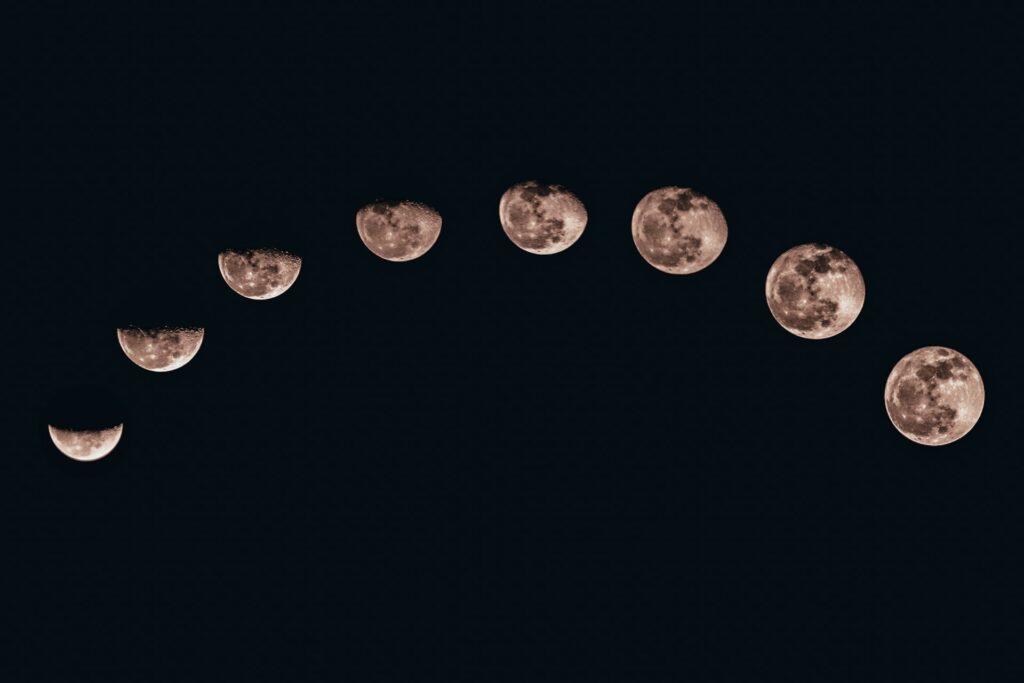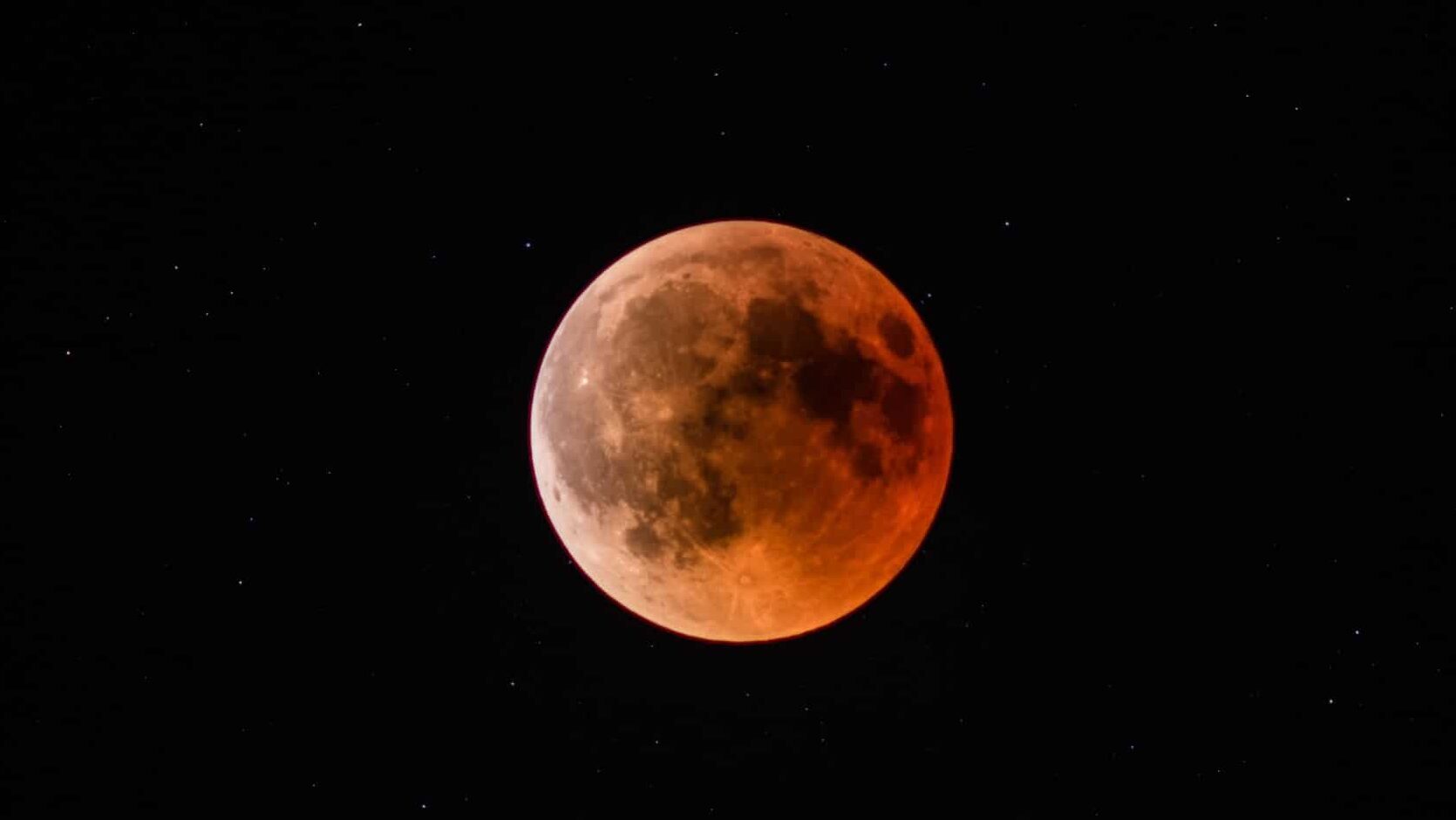This past Sunday, May 15th 2022, the people of Africa, Europe, and the Americas witnessed a lunar eclipse. For Muslims, this created an opportunity to gather together for the lunar eclipse prayer, salat al-khusuf.
Dust and Tribe is keen to realign Muslims with the natural world. This is in some ways a poor and presumptuous choice of words as it can be said that Islam exists to remind and recondition mankind into an awareness of our primal and primordial selves. A more accurate statement is that Dust and Tribe creates communal opportunities to foster our relationship with the natural world by getting Muslims outside.
In Southern California, we are blessed with many capable local Islamic scholars, but few as well-rounded as Shaykh Suhail Mulla who presides over his congregation at the Islamic Society of West Valley. He is also a social worker working to educate and improve access to mental health resources through Khalil Center and a university chaplain through the Institute of Knowledge. In short, he is a man given to servant-leadership across the spiritual, psycho-social, and academic domains.
Most importantly, he is someone I call brother and friend. We have kayaked together, trekked with llamas, and climbed mountains. They say you don’t really know someone until you have traveled with them, and after all of that traveling he will still accept my phone calls.

And when I learned of the eclipse, I called him. By the end of the day, the details of our plan to meet at the Islamic Center of West Valley for the eclipse prayer had been worked out.
We put out the invitation and through the grace of God Most High we had a lovely gathering of men and women and a handful of young people. Shaykh Suhail shared something of the history and manner of the prayer. Among the early Muslims were many who assigned superstitious meanings to the eclipse, enough that our Prophet, may the peace and blessing of God be upon him said:
The sun and the moon do not eclipse because of someone’s death or life but they are two signs amongst the signs of God, so pray whenever you see them.
Bukhari
What they are signs of, I’m not sure. Shaykh Suhail did not share that and the little bit of review I did in preparation for this blog post did not reveal anything definitive. There is mention in the Traditions of a command to release slaves during a solar eclipse and also several warnings regarding the punishment of the grave. Some contemporary writers suggest that the blotting out of the sun and moon remind one of the imminence and terror of the Final Day, and this seems reasonable.
Referencing sacred literature and relying upon historical precedent are critical to maintaining communal integrity. We should never abandon nor corrupt these roots and neither should we imagine that we are a part of a fossilized tradition. Though the age of codified textual revelation has ended, every day is ripe with targeted revelation that the All-Merciful Creator has written into his creation for each of us to absorb in accordance with our need and station.
When I consider the centrality of the brilliant moon in the lives of Muslims as both timekeeper and metaphor for beauty and purity, I recall its secret. The moon has no light of its own. The moon is a cold and pock-marked grey ball. Any beauty that it has or illumination that it provides is a consequence of its relationship with the sun. Without this light from beyond itself, the moon is hardly inspiring.
Perhaps this is why we identify so intimately with the moon. We are ourselves little more than ambulating bags of bones and fecal matter, rather pathetic in our physical composition. Among the mystics of Islam, however, is the idea that one can polish and refine one’s heart and character to reflect the Divine Light. Through this work we can become objectively and irrefutably beautiful, but only to the extent that we align ourselves with the Natural Way. Our light comes from Beyond, and our relationship with that light waxes and wanes even as the phases of the moon.

But every once in awhile, things can get a little scary. Sometimes, there is no light where there once was.
Hints as to why this might be can be gleaned from the exquisite cosmic dance that is the lunar eclipse.
The moon is at its fullest. The world is bathed in the pure silver of reflected sunlight. And then, a shadow . . .
The smoky incursion creeps over the moon becoming ever more ominous as the realization of what is happening unfolds. This is nothing less that the dunya itself, the carnal shadow-aspect of creation coming between the moon and the light whereby it is illumined.
The lesson is clear. Turn to the Divine! Do not let the fate of the moon be yours! It is at the apex of our beauty and illumination that we are at greatest risk for losing our connection with God Most High.
The Prophet, may God bless him and give him peace, taught us that there are times when prayer is particularly emphasized and he exhausted many in his community through the lengthy performance of the eclipse prayer, extending his recitation, his bowing, and his prostration for the duration of the eclipse. This could take place over several hours and some of his followers would faint from the effort. And while not obligatory, I am still not aware of any communally sanctioned prayer in our tradition that contains this level of rigor.
I don’t know why that is. But outside is where I can most easily appreciate the beauty in rigor.
Did you see the eclipse? Tell us your thoughts in the comments below.
And don’t forget to sign up for our Eid al-Adha rafting trip! Registration closing soon!
Leave a comment below for posterity or join us in the D&T Chautaqua Discord to discuss this post with other adventurous spirits from around the world.

Assalamualaikum! While I cannot presume to know the answer to your question about what eclipses symbolize, I’ll share what our respected Imam taught us. He reminded us that we humans are very set in our routines, our assumptions, and the things we take for granted. We take the rising of the sun for granted. We assume time will progress in a forward direction with the moon going through its prescribed phases. So every once in a while, as Allah subhanahu wa taala decrees, a little aberration occurs in the system. All of a sudden, when there is supposed to be bright light, there is darkness. Our resources can be cut off within a moment, if Allah wills. But out of His mercy He continues to shower us with His blessings, occasionally, sending us reminders that if He willed, it could be dark forever! Allah knows best, but reminders benefit the believer.
Salam,
I love this. And it makes me think that there is some real wisdom in the Traditions being vague about the ultimate symbolism of the eclipse. It gives us all the opportunity to meditate on the significance. The lessons are therefore endless and immediately applicable to our personal situation and experience.